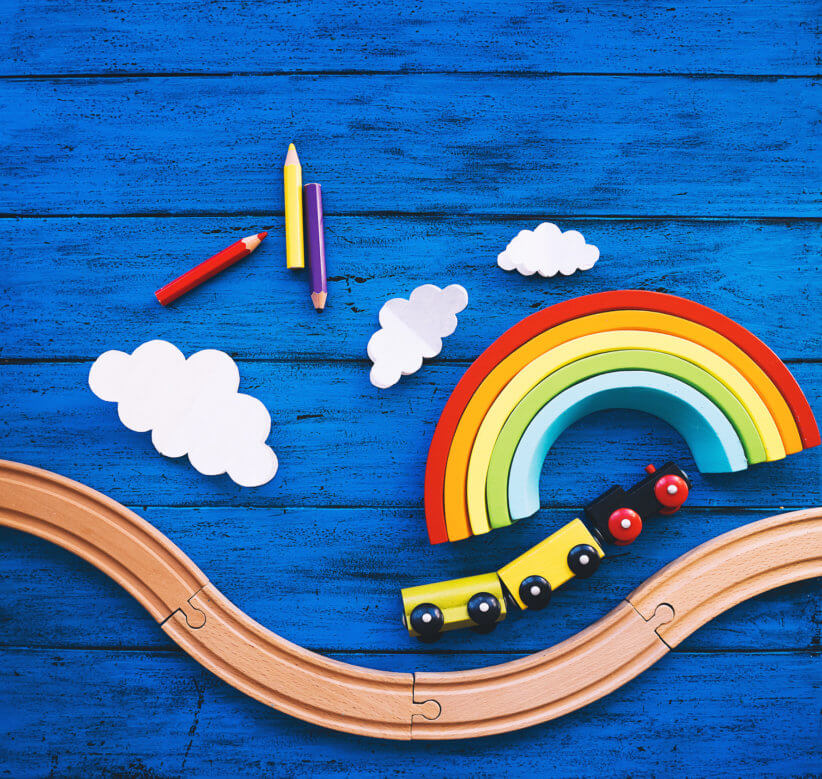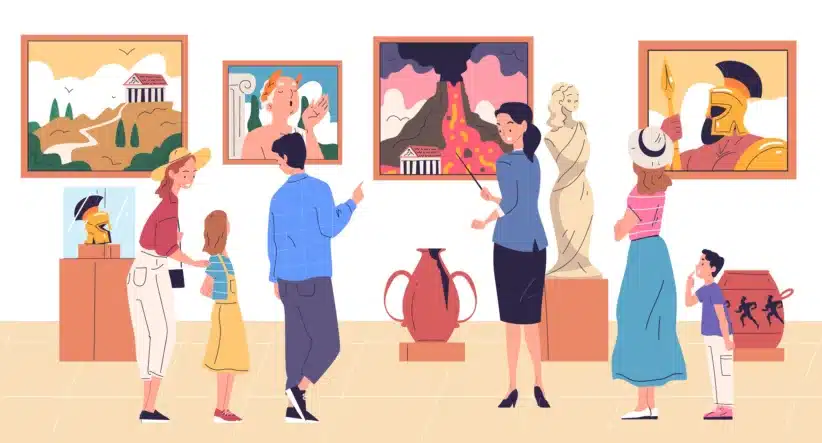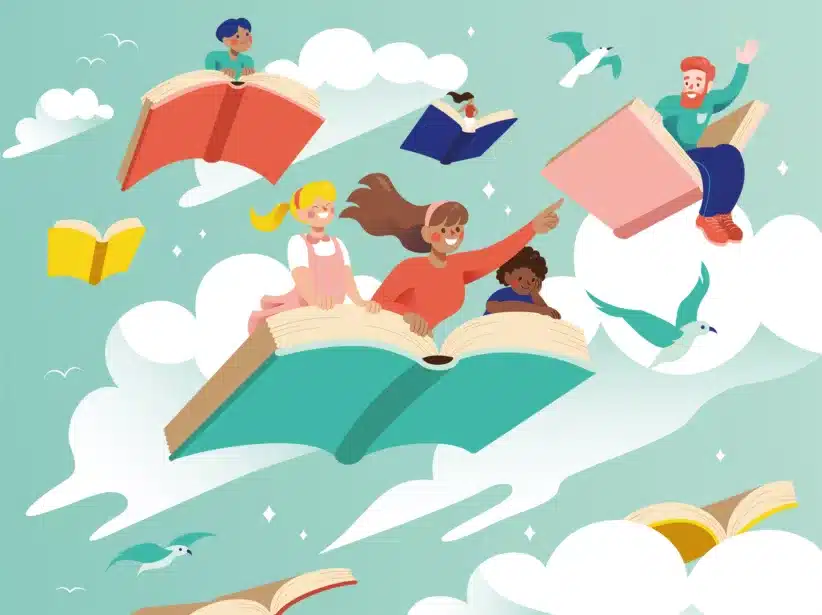
The Montessori Method
Montessori has become somewhat of a movement with over 5,000 schools now in the U.S., and many in NYC. Whether your little ones are currently enrolled in a Montessori school or not, we’re sure you’ve heard the buzz around this unique approach to education. When you embark on the oh-so-long search for a school for your kiddo, there are so many factors to consider — too many! That’s why we’ve decided to coordinate your top priorities when looking for a school with how the Montessori education fulfills them. Whether your primary concern is individualized learning, warm and welcoming classrooms, or the available resources and opportunities, we’ve got you covered.
Psst…Wanting to incorporate Montessori at home? Check out, Montessori Play Tips for Kids: How to Introduce Montessori At Home
Find out how Montessori schools match your top priorities for your child’s education with our Parent-Personalized Guide to Montessori!
Priority: Resources
If you’re looking for a school that’s overloaded with the best resources for your kids, you’ve come to the right place with Montessori. With specialized learning materials that you won’t see in other classrooms, Montessori uses their resources to develop interactions that encourage confidence and self-sufficiency. For example, “Golden Beads” introduce kids to the decimal system with concrete representations of place value, and “The Pink Tower”, with the largest cube on the bottom, introduces preschoolers to vocabulary like “largest” and “smallest”. You may hear the term “control of error” around the Montessori community, which basically means that materials are designed so kids get instant feedback about their progress and learn from errors without adult assistance. There are also opportunities to develop and run a business, class government, experiences in nature, and plenty of hands-on activities so kids can choose what they want to work on.
Priority: Individualized Learning
Do you prioritize an education for your kiddo that really focuses on their own personal progress and learning needs? Montessori recognizes that all students learn at different paces, so teachers focus on each student’s individual needs. The Montessori curriculum is also intentionally grouped into 3-year cycles, rather than broken out into year-by-year expectations for student learning. Kids are encouraged to pursue their own interests and curiosities, taking the time they need to fully understand each concept and meet individualized learning goals. Montessori students learn to take care of themselves and their environment — they wash tables, organize shelves, prepare their own meals, and assist younger children.
Priority: Supportive Community
Once you join the Montessori network, you become of a much larger community of teachers, students, and parents all working together. Even within the classroom, collaboration and group work is strongly encouraged, and kids learn to support each other. As children mature in the Montessori classroom over the 3-year period, they understand that they are a part of a community where everyone has their own individual needs, but also contribute to the community. The environment is super loving and the classrooms are thoughtfully arranged, welcoming each student into the community with open arms. Montessori learners recognize themselves as part of multiple communities — the community of the classroom, the community of the family, and the community of the wider world.
Priority: Well-Rounded Curriculum
Teachers carefully observe your kids in the classroom to customize the curriculum for their own unique abilities, interests, and learning style. In the Infants & Toddlers program, little ones develop skills such as language, concentration, problem solving, visual discrimination, and physical coordination. The Early Childhood classroom offers your child five areas of study: Practical Life, Sensorial, Math, Language, and Cultural Studies. Similarly, the Elementary program includes Science and Social studies, Cultural Studies, Language, Math, and Practical Life. In the Secondary program, there are advanced courses in language arts, mathematics, sciences, and social studies, as well as specialized courses, including world languages, visual and performing arts, health and fitness, field studies, and service learning. The “spiral curriculum” introduces students to many interrelated topics, repeatedly over time, to instill a broad and deep knowledge.
Priority: Location Convenience
You want a school that’s on your route to work in the morning or nearby your neighborhood so that dropping your kids off and picking them up fits smoothly into your busy NYC schedule — we totally get it! Luckily, there are a ton of Montessori schools throughout all four NYC boroughs. From Battery Park to SoHo to Morningside Heights and everything in between, location is certainly not a barrier with the abundance of Montessori schools.
Priority: Quality of Classrooms
The actual setup and design of classrooms matters, because the classroom is where your kid will be doing most of their learning. If the quality of classrooms is your top priority when looking at schools, you surely won’t be disappointed at Montessori. Each classroom is carefully planned out to cater to specific age groups and insight positive, happy feelings. Think natural lighting, soft colors, and tables or mats on the floor for individual and group work. Infants & Toddlers, Early Childhood, and Elementary programs include child-sized furniture, child-sized kitchen utensils so the students can eat, prepare, and clean up their snack on their own, low sinks accessible to children, and cozy spaces for quiet reading. Learning materials are arranged on accessible shelves according to curricular area, so students can exercise their independence when selecting their activity.
Priority: Affordability
School is expensive these days, and with summer camp fees coming up, affordability of a school is for sure a concern. Thankfully, public and charter Montessori schools are on the rise in the U.S., and public education is free! As for now, most Montessori education is provided in private schools, and tuition can vary based on location, age, hours, and other factors. However, the American Montessori Society says: “Don’t be afraid to ask about a school’s financial aid opportunities. It is one of the most common questions parents ask of private-school administrators.” Many Montessori schools offer financial aid for families in need, and some schools have reduced tuition when you enroll more than one child.
Priority: Education for Kids with Special Needs
Does your child have special needs and you’re looking for a school that will accommodate them? The Montessori education provides a nurturing environment for kids of all abilities and learning styles, including kids with special needs, physical disabilities, learning differences in reading, spelling, and math, ADHD, and mild to moderate autism spectrum disorders. Because kids learn in multi-age classes with the same teacher for three years, this provides a stable, predictable environment and sustained connection that particularly suits kids with special needs. Learning at Montessori is also multi-sensory and hands-on, and because teachers tailor education to specific needs, kids with disabilities get the individualized learning experience that works for them. Free from the pressure of meeting formal standards of learning, like grade-level benchmarks, kids with special needs can really take their time and develop a unique educational and developmental path.





















